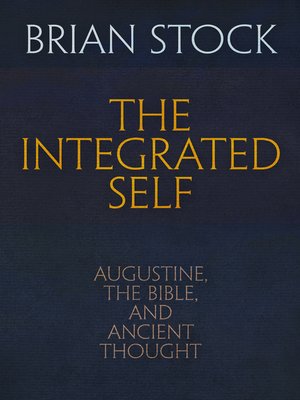The Integrated Self
ebook ∣ Augustine, the Bible, and Ancient Thought · Haney Foundation Series
By Brian Stock

Sign up to save your library
With an OverDrive account, you can save your favorite libraries for at-a-glance information about availability. Find out more about OverDrive accounts.
Find this title in Libby, the library reading app by OverDrive.



Search for a digital library with this title
Title found at these libraries:
| Library Name | Distance |
|---|---|
| Loading... |
Well before his entry into the religious life in the spring of 386 C.E., Augustine had embarked on a lengthy comparison between teachings on the self in the philosophical traditions of Platonism and Neoplatonism and the treatment of the topic in the Psalms, the letters of St. Paul, and other books of the Bible. Brian Stock argues that Augustine, over the course of these reflections, gradually abandoned a dualistic view of the self, in which the mind and the body play different roles, and developed the notion of an integrated self, in which the mind and body function interdependently.
Stock identifies two intellectual techniques through which Augustine effected this change in his thought. One, lectio divina, was an early Christian approach to reading that engaged both mind and body. The other was a method of self-examination that consisted of framing an interior Socratic dialogue between Reason and the individual self. Stock investigates practices of writing, reading, and thinking across a range of premodern texts to demonstrate how Augustine builds upon the rhetorical traditions of Cicero and the inner dialogue of Plutarch to create an introspective and autobiographical version of self-study that had little to no precedent.
The Integrated Self situates these texts in a broad historical framework while being carefully attuned to what they can tell us about the intersections of mind, body, and medicine in contemporary thought and practice. It is a book in which Stock continues his project of reading Augustine, and one in which he moves forward in new and perhaps unexpected directions.







